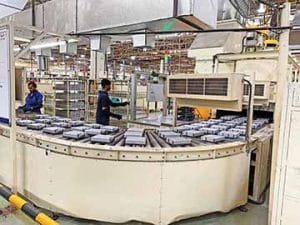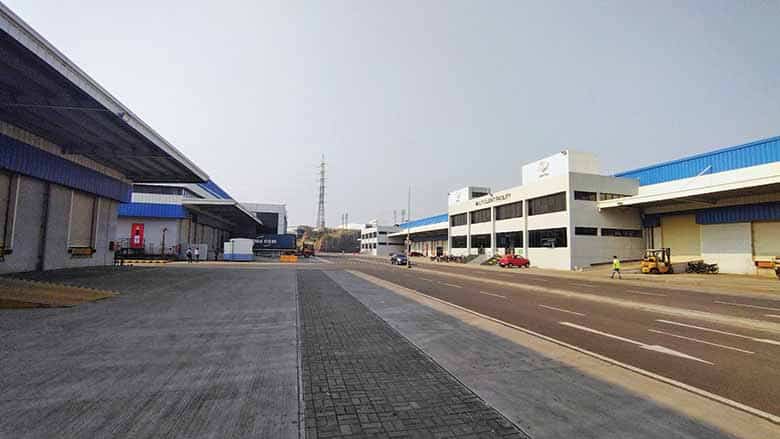The Tamil Nadu FY23 budget is all about growth, employment opportunities and new industries. Satyakam Arya, Chairman of CII, Tamil Nadu State Council and MD & CEO at Daimler Commercial Vehicles India breaks it down for us.
 Tamil Nadu’s FY23 Budget is all about growth, employment opportunities and new industries. Satyakam Arya, Chairman of CII, Tamil Nadu State Council and MD & CEO at Daimler Commercial Vehicles India cites how over the years, Tamil Nadu (TN) has emerged as an economic powerhouse, being the second-highest contributor to India’s GDP. It is the most industrialised state in the country and a favourite destination for new investments, moving swiftly towards becoming a hub for electronics-related technological transformation. The FY23 TN budget is focused on the mid to long-term priorities of the state for achieving sustainable socio-economic growth. Backed by a sound long-term shared vision of all stakeholders, industry, and government, Tamil Nadu’s economy has demonstrated sustained growth over the years and is on its way to achieving its vision of becoming a USD one trillion economy by FY 2030-31.
Tamil Nadu’s FY23 Budget is all about growth, employment opportunities and new industries. Satyakam Arya, Chairman of CII, Tamil Nadu State Council and MD & CEO at Daimler Commercial Vehicles India cites how over the years, Tamil Nadu (TN) has emerged as an economic powerhouse, being the second-highest contributor to India’s GDP. It is the most industrialised state in the country and a favourite destination for new investments, moving swiftly towards becoming a hub for electronics-related technological transformation. The FY23 TN budget is focused on the mid to long-term priorities of the state for achieving sustainable socio-economic growth. Backed by a sound long-term shared vision of all stakeholders, industry, and government, Tamil Nadu’s economy has demonstrated sustained growth over the years and is on its way to achieving its vision of becoming a USD one trillion economy by FY 2030-31.

Satyakam Arya, Chairman of CII, Tamil Nadu State Council and MD & CEO at Daimler Commercial Vehicles India
The budget presented by Palanivel Thiaga Rajan, the Finance Minister of Tamil Nadu approaches critical needs to become future-ready and to make the environment conducive for new industries to proliferate. The TN 2022-23 budget was presented to strengthen the fiscal position of the state without increasing the tax burden of the taxpayers, increasing youth employability, attracting new investments, and data-driven governance. The reduction of the fiscal deficit from 4.33 per cent to 3.80 per cent is a great achievement of the State Government despite the pandemic situation and lockdowns during the last fiscal year. TN is an attractive destination for industrial investments and the supply chain sector plays a crucial role in enabling the growth. The pandemic has affected the supply chain and hence stability in the entire value chain will take time. Robust supply chain infrastructure is a crucial element for growth in the manufacturing sector and it is important to improve the overall efficiency in the sector while trying to accelerate demand for logistics services.
Additionally, the ongoing war in Ukraine can disrupt the global economic recovery. In such a scenario, the Government’s allocation of Rs.50,000 crore towards the construction of industrial parks in Vellore and Coimbatore, and another allotment of Rs.32,667 crore to the industries department for the development of logistics and supply chain systems is a great step. An improved supply chain infrastructure will directly result in improving the ease of doing business, which will in turn make Tamil Nadu a lucrative market for manufacturing. With higher spending allocated for the infrastructure sector, this is significant considering that the government aims to boost employment opportunities and strengthen the economy of the State. The Budget has also strongly focused on developing industries, encouraging MSMEs and Startups. Among MSMEs, the budget announced an allocation of Rs.50 crores for the development of 20 micro-clusters. An important aspect here is that the government is paying attention at the grass-root level or at the bottom of the pyramid to capitalise on traditionally available skills and provide impetus to developing them as an industry. It ensures economic growth and employment across the state. These are all smaller than the micro-units and they might not always require infrastructure for growth but rather address issues like their need for design inputs or visits to other clusters.
The State Government is also proactively working in meeting the demand for skilled manpower. This is evident from the special fund of Rs.100 crores that will be created to build the necessary public infrastructure for export organisations in Tamil Nadu. This fund would be utilised to set up skill centres, testing centres, export warehouses, and inland container depots, with contributions from industries and industry associations. The agricultural sector has great potential to provide an essential contribution to employment opportunities and work quality. Sustainable and continued growth in the agricultural sector can act as a catalyst and make significant contributions to the fight against poverty and can lead to an increase in the household incomes of the people involved in the agricultural sector. Tractor components suppliers stand to benefit. The TN Budget rightly addresses this as the Tamil Nadu Agriculture Budget for 2022-23 emphasises the use of technology like IoT, drones, and remote sensing, besides envisaging a role for industries and other allied departments to ensure remunerative prices for farmers and enhancing employment opportunities in the farm sector.
It is also good to see that many of the recommendations of CII have been accepted by the Government which include an upgraded single window system for CMDA, increasing of FSI to encourage transit-oriented development and the adjoining areas of the outer ring road of Chennai, Startup centre at Nandambakkam, regional startup hubs at Madurai, Tirunelveli and Erode, increased funding for Chennai-Kanyakumari industrial corridor and the Rs.5750 crore, 20 km double-deck flyover from Chennai port connecting Maduravoyal, to reduce congestion, bring more logistical efficiency and to have a great connector for multi-modal logistics. In the coming years, we are expecting the Government to push for more investments in the Southern districts of Tamil Nadu which lack industries and infrastructure for the overall economic development of the region.
Another aspect is focused on renewable energy generation whether it is wind power or solar power. TN already has a sweet spot in terms of the highest number of sunny days in a year and is also conducive to the generation of power harnessing wind. The government should encourage further investments and make it easier for industries to switch to renewable energy sources as early as possible. I believe that future footprint decisions by global corporations will also take into account whether the investment destination provides a conducive atmosphere to have a low carbon footprint right from the beginning. Further, there must be a speedy implementation of the Chennai-Kanyakumari Industrial Corridor (CKIC). The Corridor is likely to generate over 4.7 million additional jobs, driven by an annual manufacturing output of USD 222 billion. Overall, the TN Budget is futuristic, inclusive, and propels economic growth. However, all these plans will only have a positive impact when there is proper execution. The Government and private sector will have to come together to develop sector-specific industry clusters with excellent and competitive infrastructure and an end-to-end ecosystem of value chains like suppliers and service providers. If there is no gap between the announcement and implementation, Tamil Nadu is going to witness a spur in economic growth.










Leave a Reply